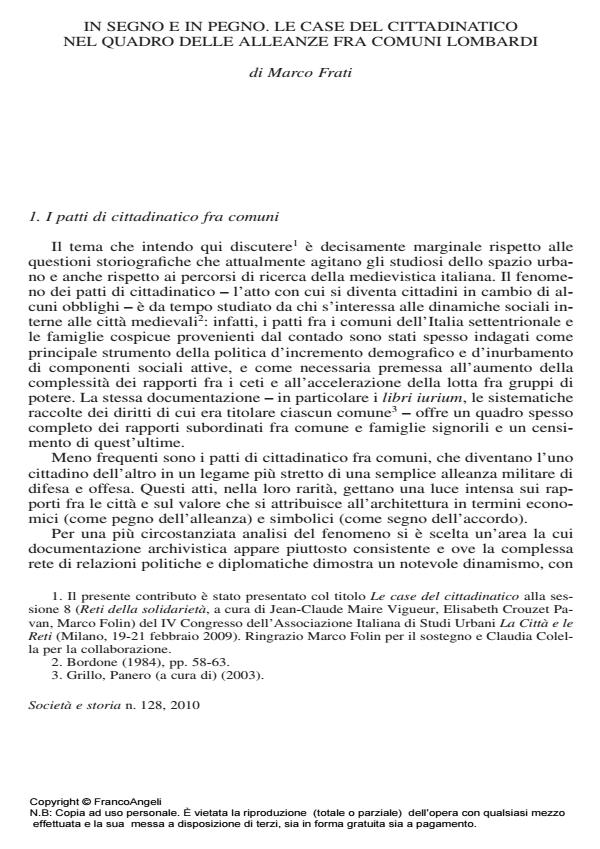The houses as pledge of citizenship pacts in the alliances between medieval lombard communes
Journal title SOCIETÀ E STORIA
Author/s Marco Frati
Publishing Year 2010 Issue 2010/128
Language Italian Pages 17 P. 225-241 File size 1994 KB
DOI 10.3280/SS2010-128001
DOI is like a bar code for intellectual property: to have more infomation
click here
Below, you can see the article first page
If you want to buy this article in PDF format, you can do it, following the instructions to buy download credits

FrancoAngeli is member of Publishers International Linking Association, Inc (PILA), a not-for-profit association which run the CrossRef service enabling links to and from online scholarly content.
The ever shifting alliances between Italian mediaeval communes draw a picture far removed from old historiographic patterns, which assign each town a fixed ideological role. These changes were dictated by all sorts of different reasons and gave rise in turn to various political and constitutional experiments, reflecting the interests of communities and individuals in power. Among the boldest solutions adopted were "twinnings" between town councils, which were rather frequent in Piedmont and needed solid instruments to work. In some cases, one town agreed to buy a house in another town, thus acquiring a symbolical residence there. This house was a kind of embassy and served as a pledge of the stipulated alliance. This was standard procedure in citizenship agreements, where landlords and peasants were invited or required to move to towns and dwell within their walls for a minimum period. Should the new citizen leave his residence before this time expired, the property of his house would be forfeited to the commune. Possession of real estate guaranteed the endurance of the alliance. These houses were seldom used as seats of the twin commune’s delegations; they were rather intended as showpieces, which fostered good relations between the institutions they represented. Their maintenance was an important and was provided by the host at the guest’s expenses. The latter could repay themselves by renting rooms to their migrant citizens.
Keywords: Westbau, Piedmont, XII-XIIIth century, Lombard towns.
Marco Frati, In segno e in pegno. Le case del cittadinatico nel quadro delle alleanze fra comuni lombardi in "SOCIETÀ E STORIA " 128/2010, pp 225-241, DOI: 10.3280/SS2010-128001